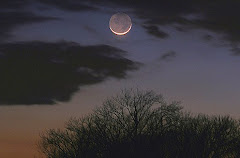Wednesday, March 25, 2009
Ursula Le Guin
I believe that all the best faculties of a mature human being exist in the child, and that if these faculties are encouraged in youth they will act well and wisely in the adult, but if they are repressed and denied in the child they will stunt and cripple the adult personality. And, I believe that one of the most deeply human, and humane, of these faculties is the power of imagination: so that it is our pleasant duty, as librarians, or teachers, or parents, or writers, or simply as grownups, to encourage that faculty of imagination in our children, to encourage it to grow freely, to flourish like the green bay tree, by giving it the best, absolutely the best and purest, nourishment that it can absorb. And never, under any circumstances, to squelch it, or sneer at it, or imply that it is childish, or unmanly, or untrue.
For fantasy is true, of course. It isn't factual, but it is true. Children know that. Adults know it too, and that is precisely why many of them are afraid of fantasy. They know that its truth challenges, even threatens, all that is false, all that is phony, unnecessary, and trivial in the life they have let themselves be forced into living. They are afraid of fantasy, because they are afraid of freedom.
- Ursula K. Le Guin -
From: The Language of the Night
For fantasy is true, of course. It isn't factual, but it is true. Children know that. Adults know it too, and that is precisely why many of them are afraid of fantasy. They know that its truth challenges, even threatens, all that is false, all that is phony, unnecessary, and trivial in the life they have let themselves be forced into living. They are afraid of fantasy, because they are afraid of freedom.
- Ursula K. Le Guin -
From: The Language of the Night
Wednesday, March 18, 2009
Wolf

I hear your song echo through
Pores and flesh and hair
You lie there
In the white wilderness dress of my
Mind's winter coat
Melting the frost
On my body and
Inside my voice
Warmth rises
From deep within
the forest
Undisturbed
by the nighttime
mist of breath
From your howl;
A sailing medicine
ascends to the sky
And flies
No shade of dark
Can constrain this
Smooth, soothing voice
All I hear
When I shut my eyes
is your image
Running wild in the snow
The moon undresses
My wounds
And frustrations are laid out
To satisfy your hunger
I feed them to you
And surrender to
Ressurection
Sunday, March 1, 2009
Terence McKenna
The apprenticeship is over :( The blog is a resource and a repository of information for those with an interest in Shamanism. Is there any objection to continuing with posts?
A good friend recently introduced me to Terence McKenna. I've collected a few of his talks and think he's an important philosopher and writer of the psychedelic movement. He frequently lectured about the corrupting influence of Western culture and ideologies, and he believed shamans were bearers of "spiritual technologies," which could be used to help improve the consciousness. To me his main message is that we can explore the world's mysteries and unlock the mind's potential through restoring our relationship with the earth and the plants. Here is an excerpt from one of his talks complemented with some beautiful graphics.
A good friend recently introduced me to Terence McKenna. I've collected a few of his talks and think he's an important philosopher and writer of the psychedelic movement. He frequently lectured about the corrupting influence of Western culture and ideologies, and he believed shamans were bearers of "spiritual technologies," which could be used to help improve the consciousness. To me his main message is that we can explore the world's mysteries and unlock the mind's potential through restoring our relationship with the earth and the plants. Here is an excerpt from one of his talks complemented with some beautiful graphics.
Subscribe to:
Comments (Atom)






